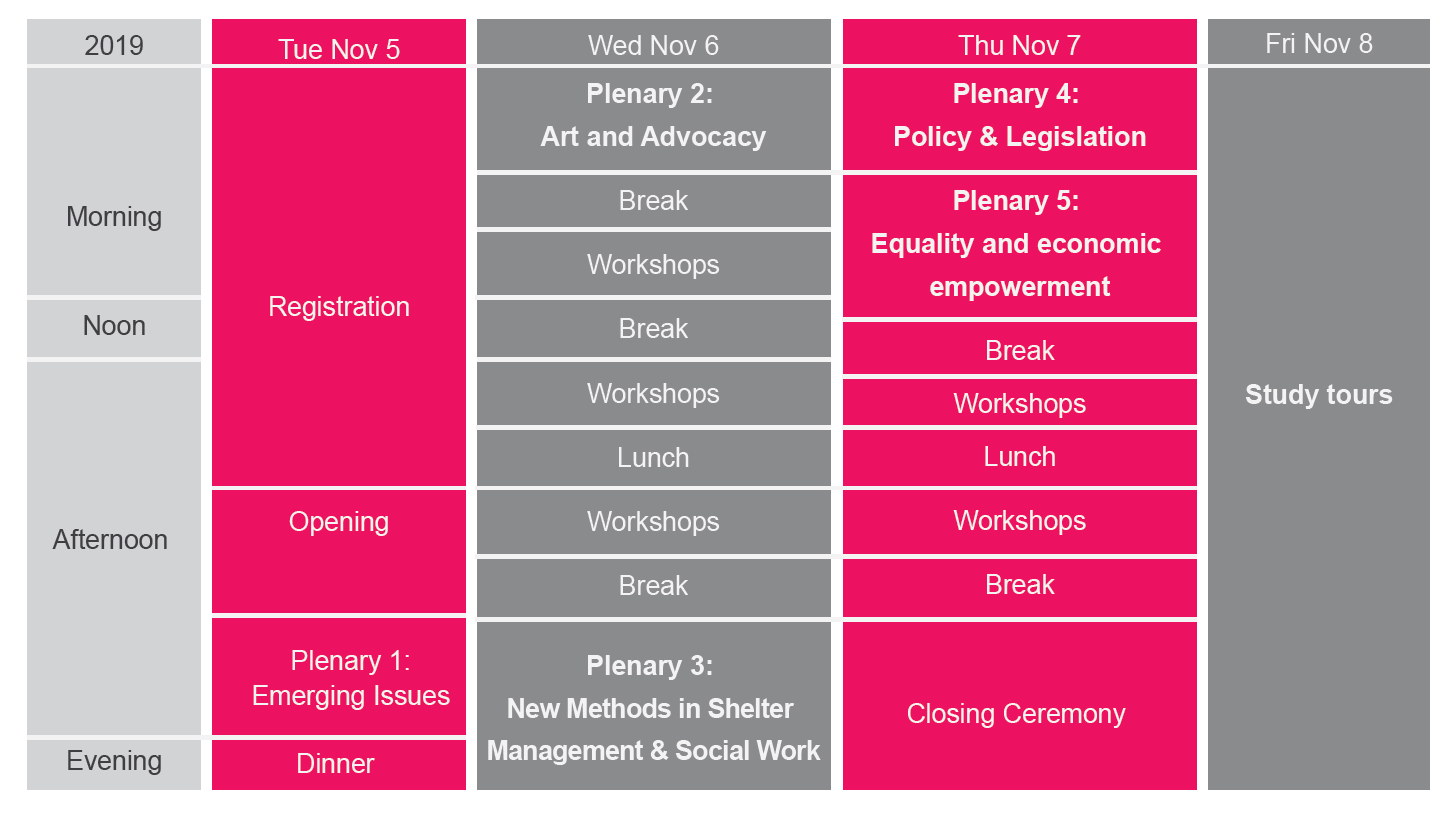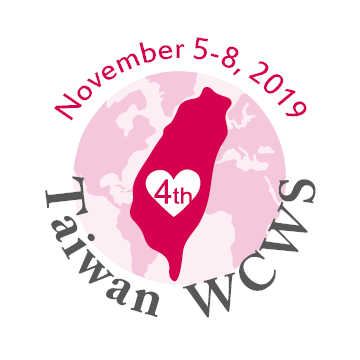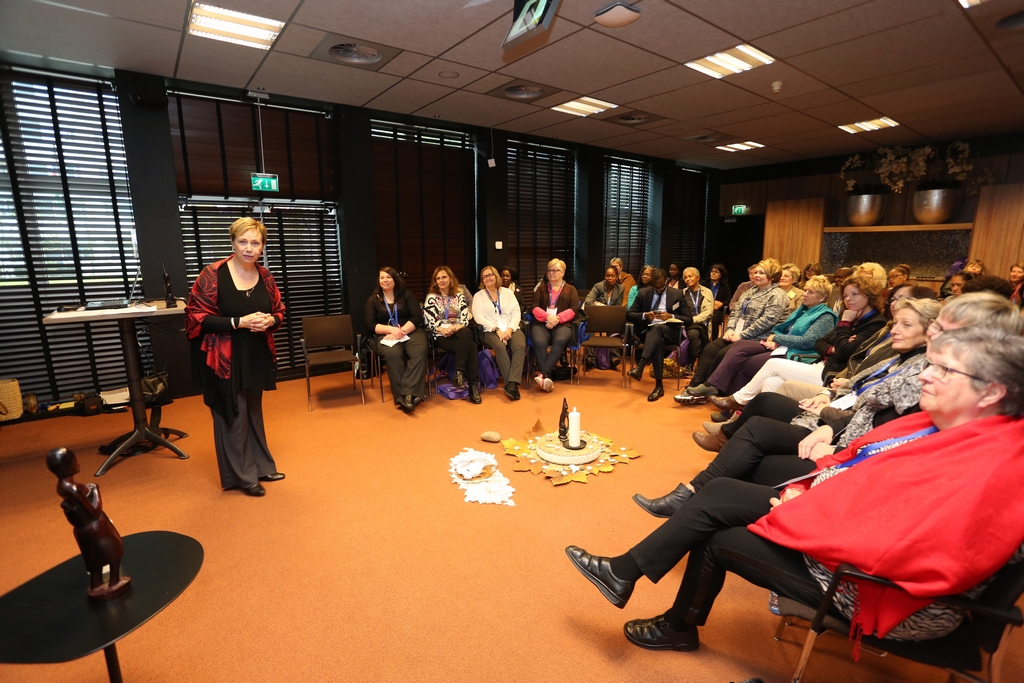Program
The 4WCWS program reflects the key issues facing both the shelter community and the broader movement to end violence against women today.
Theme 1: Emerging Issues
This session will be an open space for discussion on new and emerging issues such as data collection, privacy, LGBTQ shelter management, institutional abuse, and more.
Theme 2: Art and Advocacy
From the Vagina Monologues to the #MeToo campaign, the arts and culture industry is a key player in changing public opinion on violence against women. This session will discuss using the arts to stop gender-based violence.
Theme 3: New Methods in Shelter Management and Social Work
This session will challenge participants to think out of the box about protecting survivors by looking at innovative systems, integration of resources, and services that meet the diverse needs of survivors.
Theme 4: Policy and Legislation
This session will critically examine international standards and goals, explore innovative strategies to improve accountability and coordination, and identify laws and policies that help protect victims and end abuse.
Theme 5: Equality and Economic Empowerment
This session will look at ways to increase the productive earning power of women and develop inclusive communities, reduce poverty and violence, and empower women and girls.
Program

Workshops and Seminars
Breakout workshops and seminars of over 120 presentations will provide multiple platforms for exchanges of ideas, and informed discussions between practitioners, policy-makers, academics and survivors on innovative solutions to the epidemic of violence against women.
Workshops and mini-seminars will take place concurrently after each of the five plenary sessions on Art and Advocacy, New Methods in Shelter Management and Social Work, Policy and Legislation, Equality and Economic Empowerment, and Emerging Issues.
Workshop organizers and mini-seminar presenters will develop the issues raised in the plenaries, introduce new practices and developments, highlight case studies and practical solutions to local problems, facilitate imaginative brainstorming on innovative ideas, and engage in deeper discussions with other attendees.
There are two breakout session formats: 90-minute workshops led by one or more facilitators, and mini seminars with 4-5 short presentations facilitated by an independent moderator. To avoid topic-overlap and to promote networking, we have encouraged workshop presenters to be open to the idea of allowing us to combine sessions with another facilitator.
The official conference language is English. The plenary sessions will have simultaneous translation in Chinese, Spanish and Japanese. Breakout sessions may be presented in any language, but please note other than certain sessions there will be no translation service. Non-English presenters should provide their own translation or give a workshop in their language of choice - though this may limit the audience.
All rooms are equipped with audio-visual equipment. Most rooms also have a whiteboard. Seating arrangements are flexible. Presenters should arrive early to set up the room.

